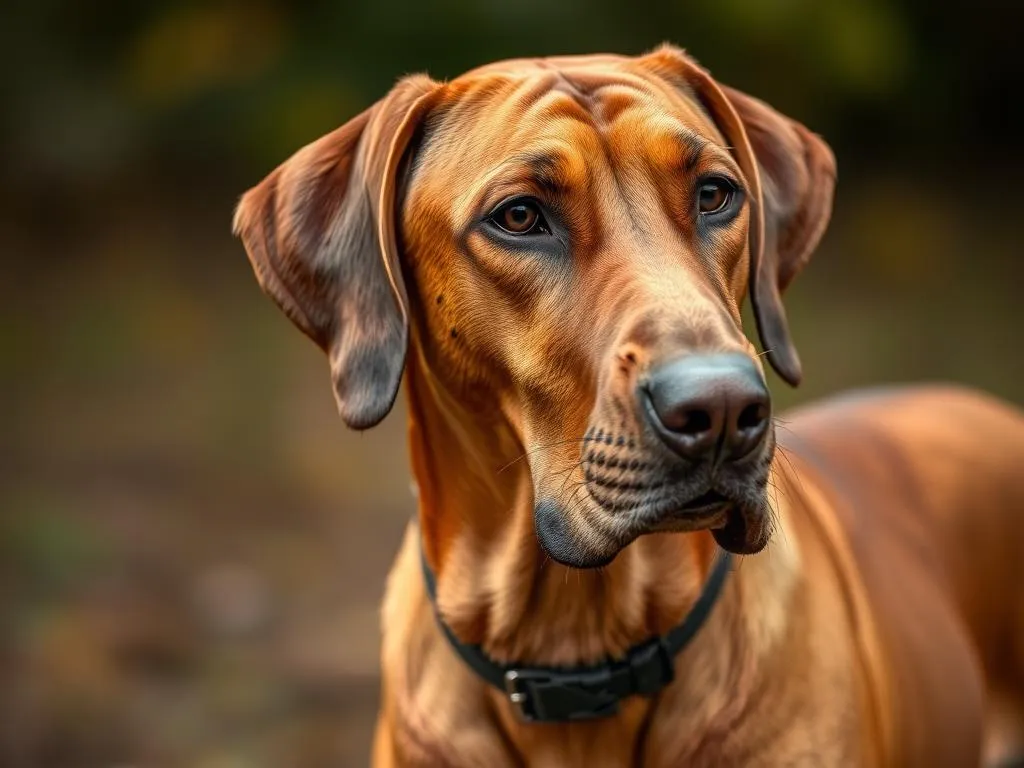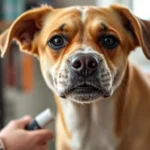
The Rhodesian Ridgeback is a remarkable breed renowned for its unique appearance, strong temperament, and rich history. Understanding their lifespan and overall health care needs is crucial for current and prospective owners alike. This article delves into the intricacies of the Rhodesian Ridgeback, focusing on their lifespan, health issues, and care strategies that can significantly affect their quality of life.
Understanding the Rhodesian Ridgeback
Breed Characteristics
The Rhodesian Ridgeback is a medium to large-sized dog, typically weighing between 70 to 85 pounds and standing about 24 to 27 inches tall at the shoulder. Their distinctive feature is the ridge of hair along their back that grows in the opposite direction to the rest of their coat. The breed’s coat is short and dense, with colors ranging from light wheaten to red wheaten.
In terms of temperament, Rhodesian Ridgebacks are known for being loyal, intelligent, and independent. They are often described as affectionate with their families but can be reserved around strangers. This breed exhibits a strong prey drive, stemming from its historical use as a hunting dog, which makes early socialization and training essential.
Historical Background
Originating in Southern Africa, the Rhodesian Ridgeback was bred by the Khoikhoi people and later by European settlers. Their primary purpose was to hunt lions, which required not only strength and agility but also courage and endurance. Over time, they became valued companions, known for their protective nature and adaptability to family life.
Lifespan of Rhodesian Ridgebacks
Average Lifespan
The average lifespan of a Rhodesian Ridgeback ranges from 10 to 12 years. While this is relatively typical compared to many breeds, it is essential to consider various factors that can influence their longevity. For instance, smaller breeds often live longer, with some exceeding 15 years, while larger breeds may have shorter lifespans.
Factors Affecting Lifespan
Several factors impact the lifespan of Rhodesian Ridgebacks. Genetics play a significant role, as certain hereditary conditions can predispose them to health issues. Environmental influences, including living conditions and climate, also contribute significantly. A well-balanced diet is crucial, as nutrition directly affects overall health and longevity.
Common Health Issues in Rhodesian Ridgebacks
Genetic Predispositions
Rhodesian Ridgebacks are prone to specific genetic health issues. Hip dysplasia is one of the most common concerns, which can lead to arthritis and mobility issues as they age. Another hereditary condition is the dermoid sinus, a skin defect that can lead to infections.
Early detection through screening and regular veterinary check-ups can help manage these conditions effectively. Responsible breeding practices can also mitigate the risks of genetic health issues, making it essential for prospective owners to choose reputable breeders.
Age-related Health Concerns
As Rhodesian Ridgebacks age, they may face various health concerns. Arthritis is common in older dogs, affecting their joints and mobility. Cancer is another significant risk, as it is one of the leading causes of death in older dogs. Owners should be vigilant for signs of discomfort or changes in behavior, as these can indicate underlying health issues.
Nutrition for a Healthy Lifespan
Importance of a Balanced Diet
A healthy diet is fundamental to a Rhodesian Ridgeback’s overall well-being and longevity. Key nutrients include high-quality proteins, fats, vitamins, and minerals. These help maintain muscle mass, support immune function, and promote healthy skin and coat.
When choosing between commercial diets and homemade options, it’s essential to ensure that all nutritional needs are met. Commercial diets often come formulated to meet specific life stages, while homemade diets require careful planning to ensure balance.
Feeding Guidelines
Portion control is crucial in preventing obesity, which can lead to various health issues. A feeding schedule that includes two meals per day is recommended for adult Rhodesian Ridgebacks. Special dietary needs may arise at different life stages, such as higher protein for puppies and lower calories for seniors to prevent weight gain.
Exercise and Mental Stimulation
Importance of Regular Exercise
Rhodesian Ridgebacks are active and energetic dogs that require regular exercise to maintain a healthy weight and overall health. Ideally, they should engage in at least 60 to 90 minutes of exercise daily. Activities can include long walks, runs, or play sessions in a secure, fenced area.
Regular physical activity not only keeps them physically fit but also helps reduce behavioral issues stemming from boredom or excess energy.
Mental Stimulation Activities
Mental engagement is as important as physical exercise for Rhodesian Ridgebacks. Interactive games like puzzle toys and training exercises can stimulate their minds. Additionally, socialization with other dogs is vital for developing good behavior and confidence.
Preventive Health Care
Regular Veterinary Check-ups
Routine veterinary visits are crucial for maintaining your Rhodesian Ridgeback’s health. Regular check-ups allow for early detection of potential health issues, ensuring timely intervention. Vaccination schedules should be followed to protect against common canine diseases, and preventive care measures should include regular screenings for parasites.
Parasite Prevention
Fleas, ticks, and worms are common parasites that can affect dogs. Preventive measures such as monthly flea and tick treatments and regular deworming can help protect your Ridgeback from these threats. Always consult your veterinarian for the best preventive options tailored to your dog’s specific needs.
Grooming and Hygiene
Coat Care
Despite their short coat, Rhodesian Ridgebacks benefit from regular grooming. Weekly brushing helps remove loose hair and reduces shedding, while bath time should occur as needed. It’s essential to keep their ears clean and dry to prevent infections, especially in hotter climates where moisture can accumulate.
Dental Health
Oral hygiene is crucial for a dog’s overall health. Regular dental care can prevent periodontal disease, which is common in dogs. Owners should brush their Rhodesian Ridgeback’s teeth several times a week, use dental chews, and schedule professional cleanings as recommended by their veterinarian.
End-of-Life Considerations
Recognizing Signs of Aging
As dogs age, certain signs may indicate they are nearing the end of their life. Decreased energy levels, loss of appetite, changes in bathroom habits, and increased difficulty in movement can all signal that your Rhodesian Ridgeback may be approaching their final days.
Palliative Care Options
Providing comfort measures during this time is essential. Pain management and adjustments to their living environment can enhance their remaining quality of life. Consult with your veterinarian to explore palliative care options tailored to your dog’s specific needs.
Making the Decision
Deciding on euthanasia is a deeply personal and difficult choice for any pet owner. Factors to consider include your dog’s quality of life, their pain levels, and the prognosis for their condition. Seeking advice from a trusted veterinarian can provide guidance during this emotional time.
Conclusion
Understanding the Rhodesian Ridgeback lifespan and its influencing factors is vital for responsible ownership. By prioritizing proactive health care, providing a balanced diet, ensuring sufficient exercise, and maintaining regular veterinary visits, owners can enhance their dog’s quality of life and longevity. A well-cared-for Rhodesian Ridgeback can lead a long, happy life, filled with love and companionship.









